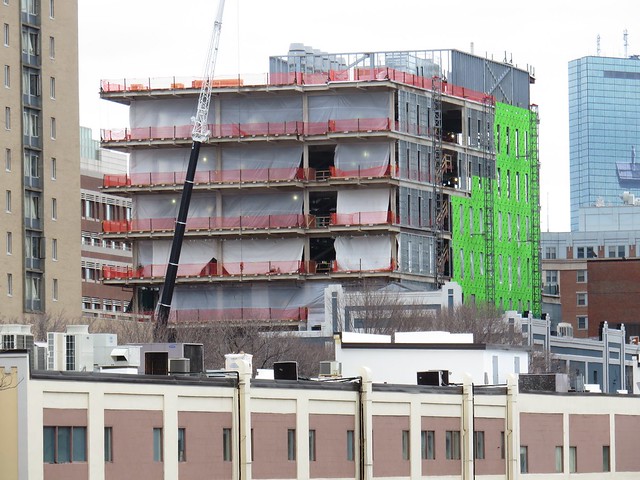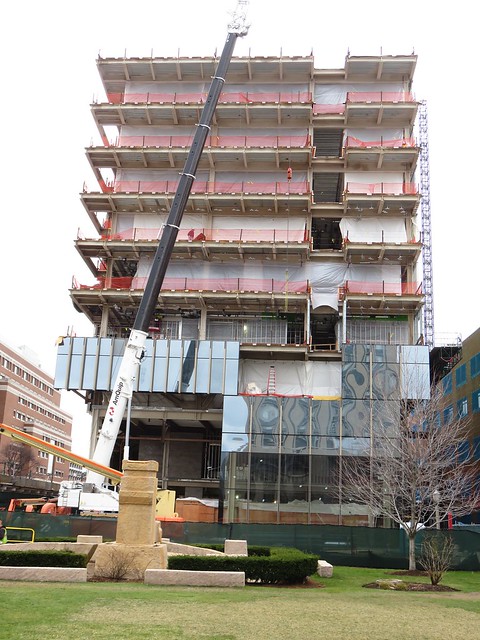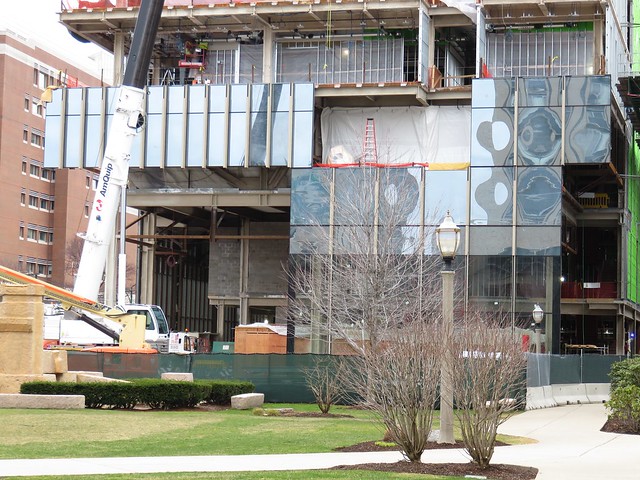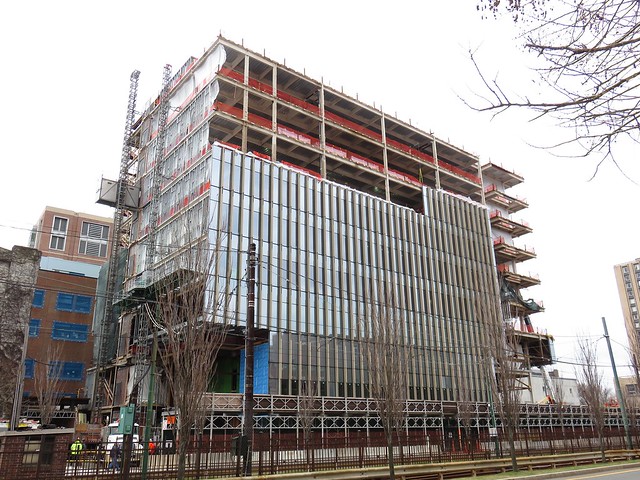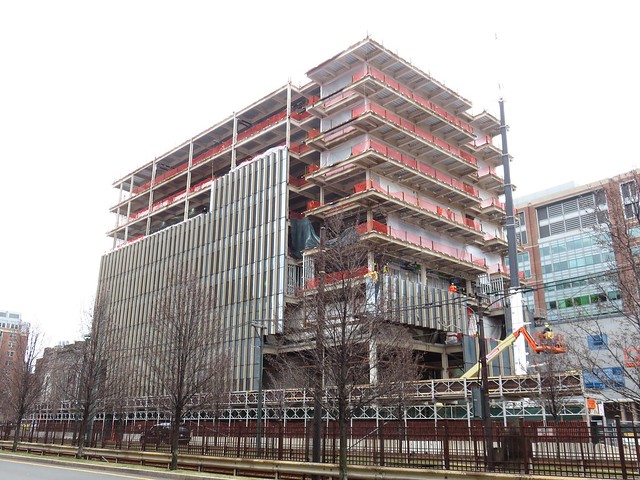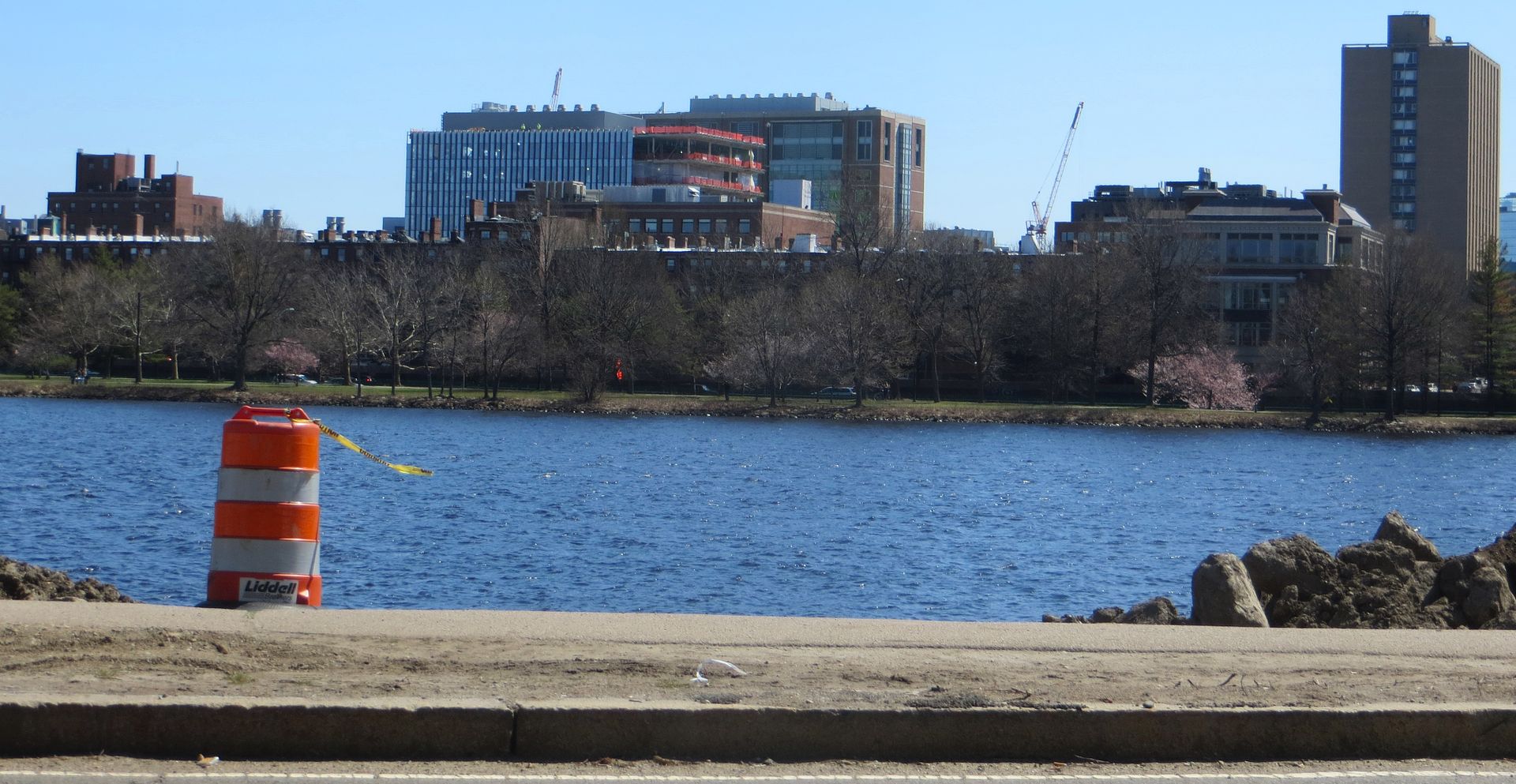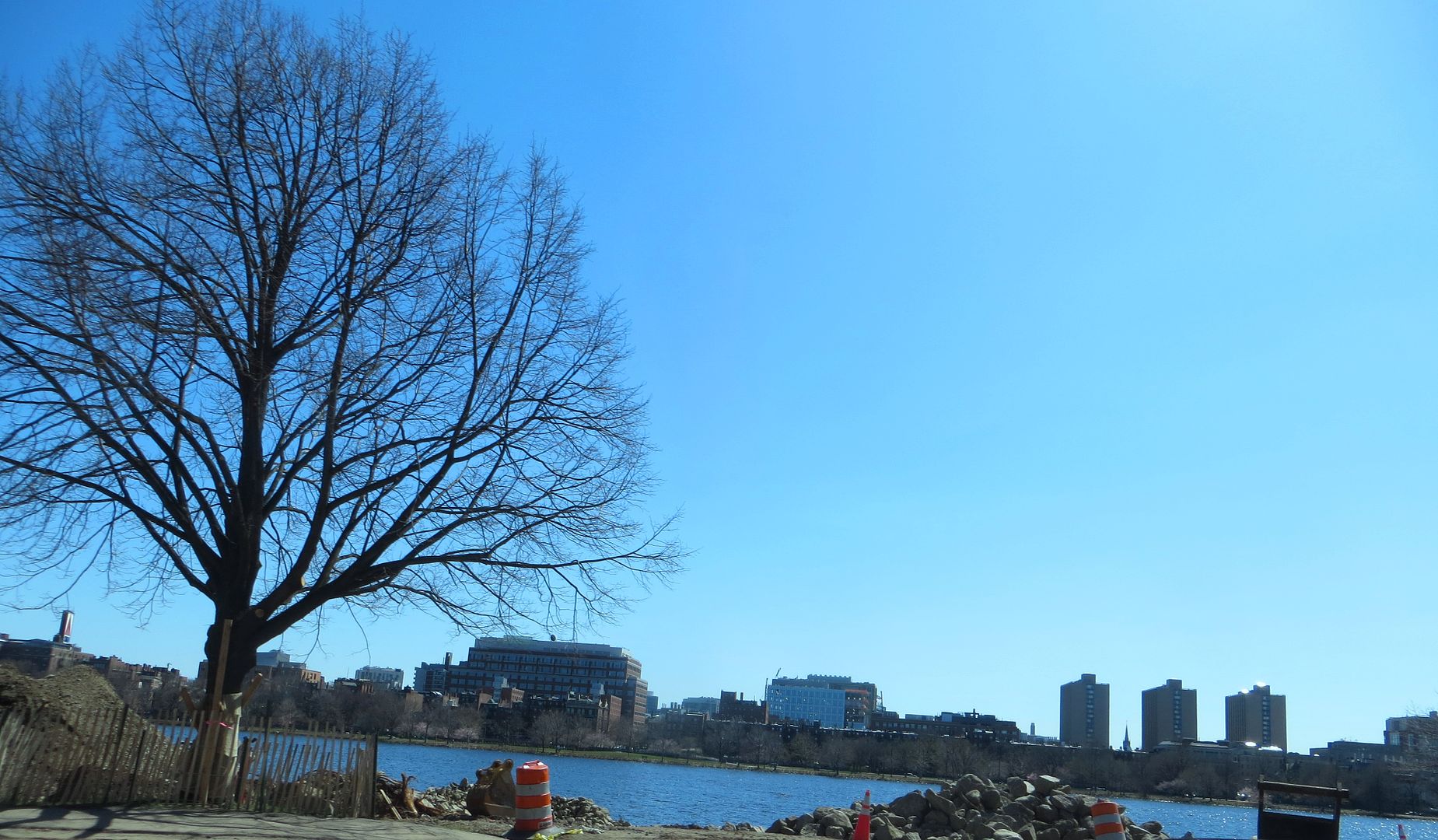^This is going to be my last response, since I think I've made my points pretty clearly. Everything you say above pertains to the perspective of BU - who cares from the students of BU's standpoint about the loss of a hair salon and pizzeria, how could a college want to promote drinking, and why would BU want cars moving through their territory on small streets. My point, as I have repeatedly stated, is that everything you have just soda illustrates the potentially negative impacts a single institution's dominance of an area can have. From the perpsective of the broader community - Brookline, Boston - and urban planning, this all amounts to BU squelching things that overall would be positives due to their own institutional desire to fully control all their land for single use only. THATs what's not acceptable.
And to the loss of BK - actually, that was one of the other few places in the entire area where one could get food late at night. Just because it was a fast food restaurant doesn't mean that it wasn't a big loss, and replacing it with the parking lot is always an abysmal alternative. When they eventually develop that lot, do you anticipate they will have any restaurants or commercial establishments in it that are directly run by actually, that was one of the other few places in the entire area where one could get food late at night. Just because it was a fast food restaurant doesn't mean that it wasn't a big loss, and replacing it with the parking lot is always an abysmal alternative. When they eventually develop that lot, do you anticipate they will have any restaurants or commercial establishments in it that are directly run by BU-contracted agencies?
I'm done arguing, this is dumb. BU as a single entity, by itself, is not the enemy here. It's not about whether BU is any worse than other institutions in this regard - big entities will always do this, and it's up to the cities and towns in which they exist to provide adequate checks on this tendency... Although I would hope that the academic institutions also overtly respect the sound urban planning principles that transcend the more specific, micro-level needs of the academic community. Yes, the universities bring benefits to cities, but they also exist tax free. Something so basic as the corridor of Comm Ave or the extremely, extremely needed connections across the rail yards are no brainers and consideration of that - transcendence of simply what will benefit the institution - is something I would hope for in any major university establishment.
And to the loss of BK - actually, that was one of the other few places in the entire area where one could get food late at night. Just because it was a fast food restaurant doesn't mean that it wasn't a big loss, and replacing it with the parking lot is always an abysmal alternative. When they eventually develop that lot, do you anticipate they will have any restaurants or commercial establishments in it that are directly run by actually, that was one of the other few places in the entire area where one could get food late at night. Just because it was a fast food restaurant doesn't mean that it wasn't a big loss, and replacing it with the parking lot is always an abysmal alternative. When they eventually develop that lot, do you anticipate they will have any restaurants or commercial establishments in it that are directly run by BU-contracted agencies?
I'm done arguing, this is dumb. BU as a single entity, by itself, is not the enemy here. It's not about whether BU is any worse than other institutions in this regard - big entities will always do this, and it's up to the cities and towns in which they exist to provide adequate checks on this tendency... Although I would hope that the academic institutions also overtly respect the sound urban planning principles that transcend the more specific, micro-level needs of the academic community. Yes, the universities bring benefits to cities, but they also exist tax free. Something so basic as the corridor of Comm Ave or the extremely, extremely needed connections across the rail yards are no brainers and consideration of that - transcendence of simply what will benefit the institution - is something I would hope for in any major university establishment.

